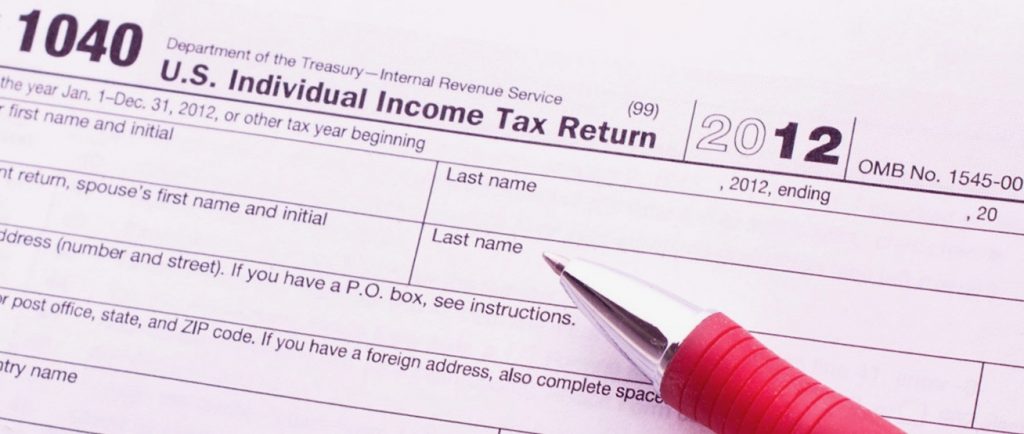
Despite life’s uncertainties, the one thing you can be sure of is tax season will roll around again. To prepare, you will need to spend some time gathering together all of your financial and health insurance documents.
Whether you qualified for a premium tax credit or not, we’ll explain how to know which of these tax forms you should receive.
What is a premium tax credit?
The Affordable Care Act includes a small business health insurance tax credit to encourage business owners to offer employees health insurance for the first time or maintain coverage they already have. Tax credits are subtracted directly from a person’s or business’ tax liability; therefore, tax credits reduce taxes dollar for dollar.
How the small business health insurance tax credit works
The health insurance tax credit is available to small businesses that pay at least half the cost of single coverage for their employees. If your business and your plan meet the qualifications, you can get a credit of up to 50% of the health insurance premiums you paid for employees, but not for yourself as the business owner.
To be eligible for the small business health insurance tax credit, you must:
- Have fewer than 25 full-time equivalent employees
- Have average wages that are lower than $56,00 (IRS indexes average wage for inflation and it changes each year)
- Pay these premiums using an IRS-qualified arrangement — generally an arrangement that requires you to pay a uniform percentage (not less than 50%) of the premium cost for each enrolled employee’s health insurance coverage
If you are self-employed and your business (sole proprietorship or single member LLC) was profitable during the year, you can get a tax deduction for yourself, your spouse, and your dependents. A tax deduction differs from a tax credit in that a deduction reduces your taxable income; thus, the value of the deduction depends on the taxpayer’s marginal tax rate, which rises with income. A self-employed health insurance deduction is available for the costs of medical insurance, dental insurance, and long-term care policies. You can deduct these costs up to the total of your self-employment gross income.
What forms should you use on your 2021 taxes?
There are different forms that you will use to report your health insurance on your 2021 taxes. It is important to note that these forms will vary, based on:
- How you received your health insurance (e.g., from a marketplace or from an employer or union),
- If applicable, the type of health plan you purchased, and
- If you had a marketplace plan and used premium tax credits to lower your insurance costs throughout the year.
Form 1095-A, Health Insurance Marketplace Statement. — This form is used if you have purchased health insurance from a government-sponsored or private marketplace. The form will include the information that you need to complete Form 8962, which is used to receive a premium tax credit. Additionally, you will need to complete Form 1095-A for each insurance policy that you had for 2021.
Form 1095-B, Health Coverage. — Your health insurer will typically send you this form to show that you and your family had health coverage throughout all or part of 2021.The form is not typically included in your tax return; however, it does contain vital information that will help you to fill out your taxes properly.
Form 1095-C, Employer-Provided Health Insurance. — If you received health insurance for all or part of the year from an employer or union, your employer or union will send you Form 1095-C. Like Form 1095-B, this form has vital information that you will need to file taxes, properly; however, it will not be included in your actual tax return.
Form 8941, Credit for Small Employer Health Insurance Premiums — To calculate the credit. For detailed information on filling out this form, see the Instructions PDF for Form 8941.
If you have additional questions about which health insurance forms to look out for during tax season, visit the official IRS website.
What does it mean to “reconcile” your premium tax credit?
If you purchased a health plan from a private or government-sponsored marketplace and used premium tax credits, you will need to “reconcile” your premium tax credit. To do this you will complete the following steps.
- Write down the amount you used to lower your monthly premium costs throughout the year.
- Based on your final income for the year, calculate the actual amount of financial aid that you qualified for in 2021.
- Compare the figure from Step 1 with the figure from Step 2. If there is a difference in the figures from Step 1 and Step 2, then you will need to either pay additional funds, or receive a tax refund.
The good news is that Form 1095-A will help you to complete Steps 1-3 easily, so that you can accurately determine if you owe additional taxes or if you will receive a tax refund.
And remember: If you didn’t take premium tax credits for which you were eligible throughout 2020, you must complete Form 8962 to receive your tax refund!
How does good recordkeeping help at tax time?
Filing taxes is easier when you keep good records. Remember that your health insurer will send you the information needed to complete your Form 1095-A successfully. Additionally, you may need to reconcile your premium tax credit and properly fill out Form 8962 so that you can receive your tax refund (if applicable). Thus, you can more easily understand how your specific health plan will impact your taxes at the end of the year by keeping good records.
Contact us to learn more about your health insurance options, or compare the small business health insurance plans available in your area.
This article is for general information and may not be updated after publication. Consult your own tax, accounting, or legal advisor instead of relying on this article as tax, accounting, or legal advice.
By: Sydney Garrow
